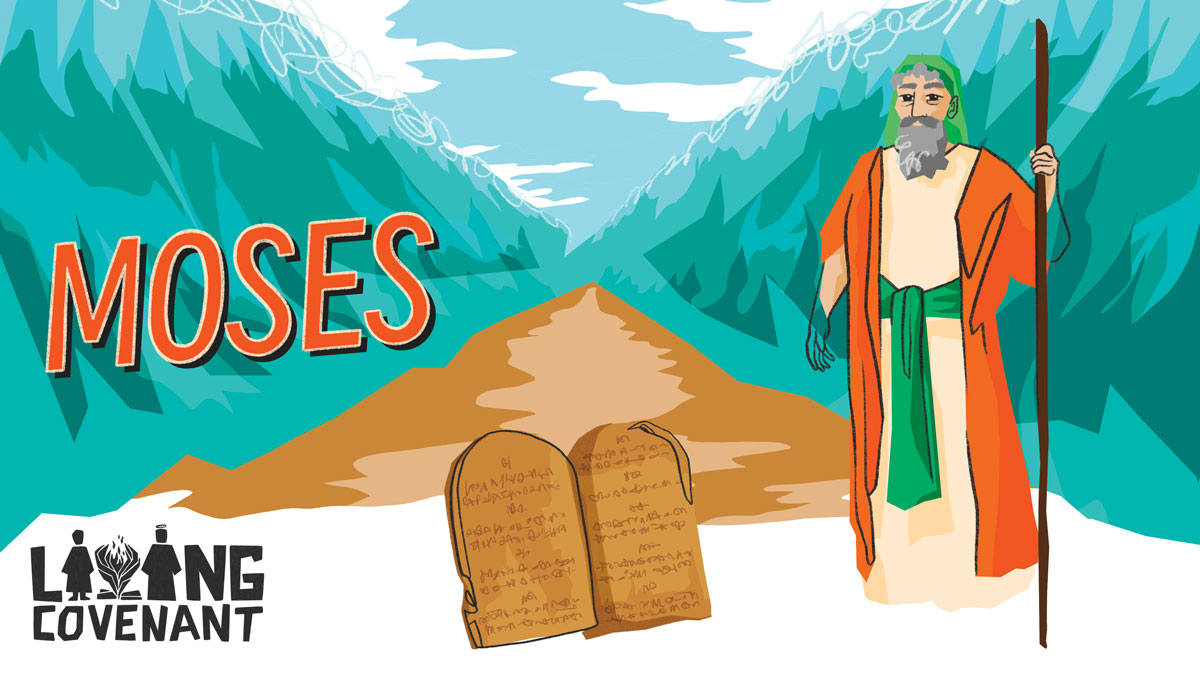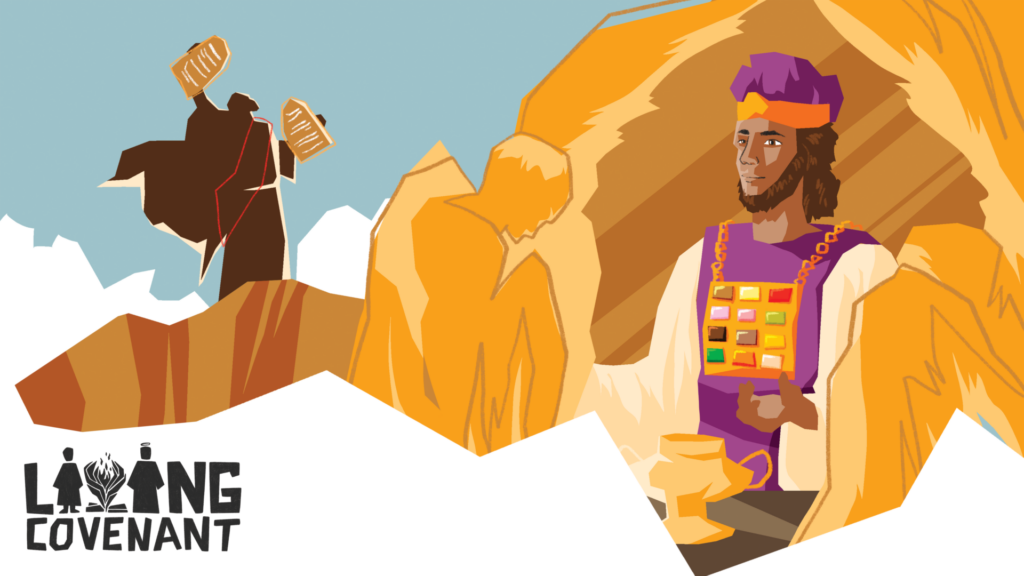When I chose to write about Moses, I knew I had probably bitten off more than I could chew. After all, I’m not a theologian or pastor, and don’t have many years of knowledge or wisdom under my belt to speak about such a huge figure in Judeo-Christian history. But when I was younger, one of the things I desired most was to be able to converse with God one-on-one, like Moses.
We read in Exodus 33:11 that, “The Lord would speak to Moses face to face, as a man speaks with his friend.”
I always wanted this kind of a relationship with God—a friendship so intimate that it was like speaking face-to-face; knowing what God is saying to you and being sure of His presence. I am sure many of you would like this kind of relationship too.
Unfortunately, for many of us this is not a reality. When we pray to God, it can often feel like our prayers are bouncing off the ceiling. We pray earnestly and genuinely to experience God’s presence, only to be met with complete and utter silence . . .
I chose to write about Moses because I think we can easily misunderstand the lifelong journey of faith Moses had with God. We focus on the later years of Moses’ life when God spoke to him face-to-face but miss the formative experiences which led Moses to that point. But it is in these formative experiences where we see the real beauty of God’s divine appointment in choosing Moses to deliver God’s covenant to the Israelites.
Moses’ first 40 years: the struggle of belonging, purpose and identity
Moses was “no ordinary child” (Hebrews 11:23; Exodus 2:2) and was educated in all the wisdom of the Egyptians, being “powerful in speech and action” as he grew up (Acts 7:20-22). Clearly, Moses was an intelligent young man who spoke well and displayed great leadership qualities. However, despite being raised in a palace, his life was not without hardships.
He wasn’t an Egyptian, and was constantly reminded of that fact by his competitors and peers.
He wasn’t a Hebrew, and was intentionally excluded from their community as an outsider.
He wasn’t next in line for the throne, but was still trapped within the formalities and expectations of the hierarchy of royalty.
He wasn’t free, but he could not empathise with the slavery of his own people.
Moses was caught between two worlds without a place to truly belong.
Yet despite his personal struggle with belonging, Moses recognised that he had the power to make a difference and sought to make use of his unique position to better the conditions of his people, the Israelites. We read in Hebrews 11:24,25 that “by faith Moses, when he had grown up, refused to be known as the son of Pharaoh’s daughter. He chose to be mistreated along with the people of God rather than to enjoy the pleasures of sin for a short time”.
But when Moses sought to reconnect with his people, they rejected him. They could not see Moses as anything other than an entitled, privileged palace-raised Egyptian. Who was this man with the audacity to identify with them when he had never done a hard days’ labour in his life? He couldn’t even speak the Hebrew language fluently! (Exodus 4:10). In Acts 7:25 we are told that “Moses thought that his own people would realise that God was using him to rescue them, but they did not”.
Why would his people reject him when he had the ability to help them? Confused, Moses earnestly sought God’s guidance to understand his purpose and calling in life. But all he heard from God was bitter silence. Prayer upon prayer was only met with emptiness and more confusion.
Moses’ inner turmoil and wrestling with belonging, identity and purpose boiled over when he took matters into his own hands to prove his allegiance, killing an Egyptian. At this point, Moses fled—ashamed, guilt-ridden, and more confused than ever about whether God had ever really set him apart, or whether he was merely an imposter with disillusionment over his divine purpose.
Moses felt like a complete and utter failure. He had believed his entire life that God had set him apart. He considered himself to be Israel’s saviour—having the position, influence, power and skillset required! But he felt he had let God down.
Little did he realise that his own strengths had become the very reason for his downfall. Moses sought to do everything by his own strength, his own ability and in his own time. He failed to realise that it was only God who could save his people.
But Moses had not failed God. This was all part of God’s plan to prepare Moses for what lay ahead and to teach him that God does not desire grand achievements from His people. What He seeks is partnership, intimacy and trust in His power to save.
Moses’ second 40 years: discovering answers in the silence
Moses had fallen from grace and lost everything. Who was he if not Israel’s saviour? What was his purpose, if not to do something great for God? Where did he belong, if not with his people, Israel?
For the first 40 years of his life, Moses wrestled with silence from God regarding his own notions of how God should be working in his life. But for these next 40 years, Moses had to wrestle with himself, learning through God’s silence to shake off his own perceptions and beliefs about God and to rediscover faith in its true form. In these next 40 years, Moses learned from his errors what true humility and reliance upon God was.
Moses lived as a nomad, an outsider among foreigners. He was confronted with a new reality. Was this all his life had turned out to be—a shepherd? Would he forever be wandering through the figurative desert of community, never able to find a place to belong? Had he been too presumptive of God’s will for his life?
But in these years in the desert, Moses grew humble and developed an unassuming spirit of meekness and daily reliance on God through the silence. As he slowly unravelled his preconceived notions of what God sought from him, Moses’ eyes were opened to the true heart of God. Moses found that he did not need a people to belong to or a community to give him an identity; he could find this completely in God. He learned that he did not need to achieve anything for God to love him; God loved him as he was—a broken, ashamed, repentant sinner.
Moses was transformed during these 80 years of silence, learning that intimacy with God does not necessarily come from “hearing” God’s voice, but from daily walking with Him. And when God finally spoke to Moses audibly at 80 years of age, Moses recognised God’s voice because he had learned to listen to God in the silence.
These formative experiences shaped Moses into the leader God needed to redeem his people. Moses found his identity and belonging in God, had learned to listen to God amidst confusion and silence, and experienced the true love of God—and now he could teach Israel to do the same.
Moses’ third 40 years: intercession and revealing God’s covenant
The final 40 years of Moses’ life were no walk in the park. Moses was constantly mocked, rejected, berated, ignored and challenged as God’s servant, even by those closest to him. Yet Moses did not falter in his faith in God, though his heavy burden and frustrations overcame him at times.
Moses saw beyond the present trials and hardships, having gained a perspective of eternity. What Moses cared most deeply about was his people’s salvation and relationship with God. This mattered more to him than anything else, even his own salvation!
We see this clearly when Moses intercedes for Israel after they have built themselves golden idols. In Exodus 32:32 Moses pleads on Israel’s behalf before God, saying: “But now, please forgive their sin—but if not, then blot me out of the book you have written.”
Moses was willing to surrender his own position in heaven, his own salvation, if it meant he could save Israel.
Does this sound familiar?
The final time Moses appears in the Bible is not upon his deathbed, but rather at the transfiguration of Christ.
Here, Moses was able to offer heartfelt encouragement to Jesus in His own time of struggle. As the Son of God Himself wrestled with His divine purpose, sense of belonging, struggle with rejection and the weight of His spiritual burden of being responsible for the faith of multitudes as their intercessor, Moses could empathise. As His lifelong friend, Moses was able to reassure Jesus to look towards the spiritual eternity of all humanity above His present struggles. Jesus was revived by Moses’ testimony, sharing the deep concern for the faith of humanity, willing to place the salvation of undeserving, rebellious people above his own.
The Covenant
Moses’ life was a testimony and demonstration of living out God’s Covenant of intimacy, love and faithfulness—long before the Ten Commandments, were ever given to him. Moses understood what God’s Covenant was all about: knowing the heart of God.
This was the purpose of the Covenant: to draw people close to God that they might understand His heart and experience His love. God wanted a real relationship of intimacy with his people . . . He still does. In this life, we will face many struggles, as did Moses. Some will wrestle with silence from God in times of great distress. Others may face great confusion over their purpose, identity or sense of belonging. Still more may be overwhelmed or feel burnt out from their responsibility in leading others in faith. But we can always take encouragement from God’s Covenant with us—confirmed in the ministry, sacrifice and resurrection of Jesus.
Olivia Fairfax is an assistant editor for Adventist Record.






